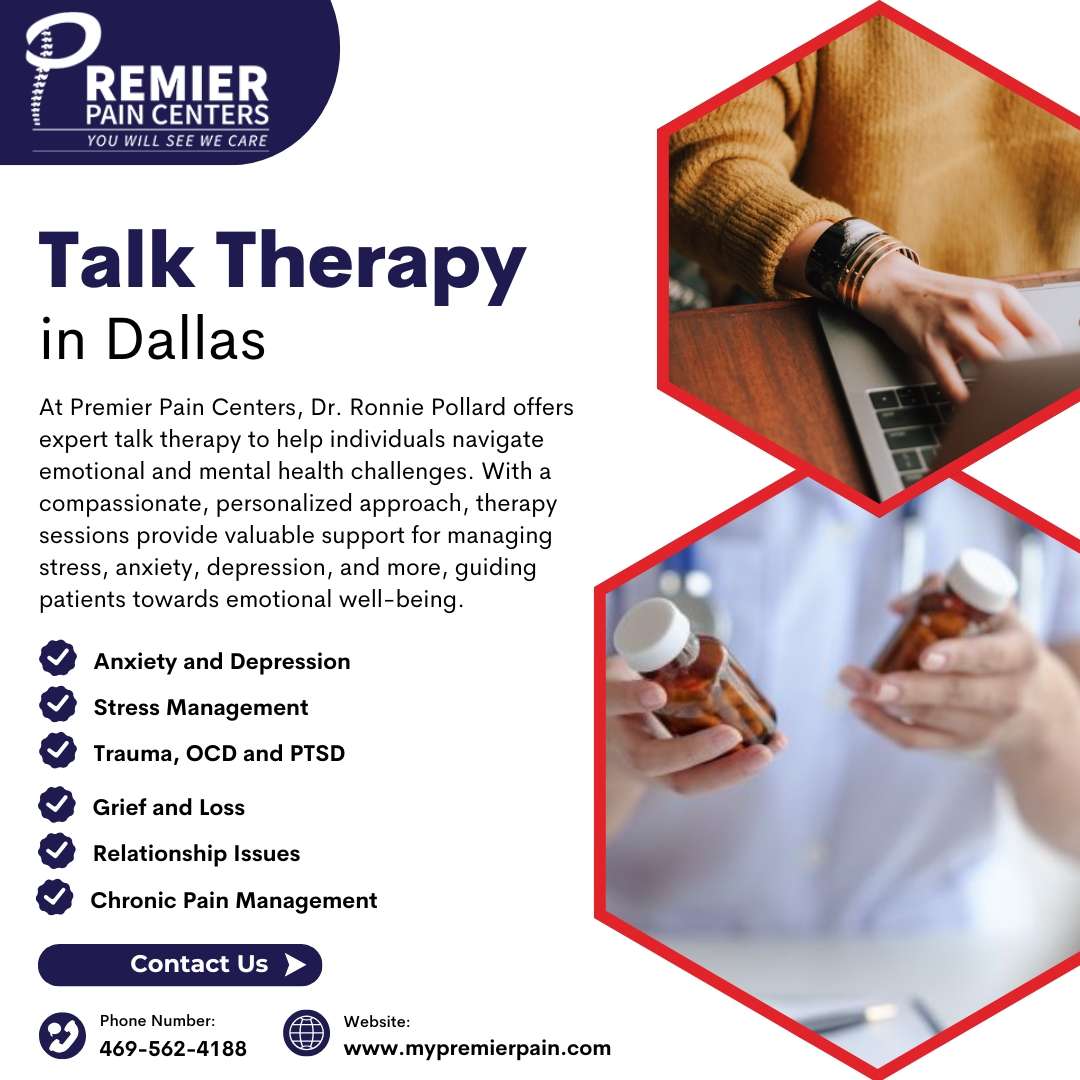Different Types Of Talk Therapy in Dallas And Their Benefits
Everyone goes through emotional turmoil. Some psychological issues are temporary and don’t require treatment. Talk therapy in Dallas can improve your mood when stress, worry, or sadness overwhelm you and interfere with your daily life.nTherapists often lead individual talk therapy sessions. Teletherapy is available on many online therapy platforms and can address mental health concerns, experiences, thoughts, feelings, and relationships. A popular and adaptable treatment, psychotherapy has been shown to relieve symptoms of many mental diseases. Psychotherapy can be employed with families, couples, or groups.
What is Talk Therapy?
Talk therapy for stress is also called psychotherapy, counseling, and therapy. Assessment, diagnosis, and therapy of emotional, mental, and behavioral difficulties through communication. Talk therapy necessitates a patient or client and a proficient mental health professional. Multiple patients or clients may attend couples, family, or group talk therapy. Talk therapy, its circumstances, and how to identify a therapist who offers it are covered in this article. The benefits of each talk therapy method are also covered.
Types of Talk Therapy
Different types of talk therapy involve a professional talking to a patient or client. However, their conversations differ in depth. Numerous specialists are proficient in various talk therapy approaches and utilize a blend thereof.
Cognitive or behavioral therapy
Cognitive talk therapy substitutes maladaptive cognitive patterns with more beneficial alternatives. This therapy helps identify and alter troublesome thoughts to enhance outcomes. Talk therapy that addresses symptoms by recognizing and changing inefficient behaviors is behavioral therapy.
Cognitive-behavioral therapy (CBT) is the best talk therapy in Dallas that blends cognitive and behavioral therapies. The link between cognition (thinking), behavior, and emotions is addressed to improve problematic behaviors by restructuring maladaptive or unhelpful thoughts.
Psychodynamic Therapy
Psychodynamic psychotherapy tackles unconscious elements like motivation and drive in talk therapy. This strategy uses self-awareness to change bad patterns. It involves expert help to identify unconscious thoughts. In this style of therapy, the patient or client may share anything and discuss the patterns in those thoughts.
Humanistic Therapy
Humanistic psychotherapy prioritizes current advancement over historical development. This methodology underscores individual accountability and its capacity for development. Humanistic therapy takes a holistic view of the patient. This treatment focuses on present thoughts and feelings rather than past events. Talk may highlight individuality and move forward from that insight.
Integrative Therapy
Integrative talk therapy, also known as psychotherapy integration, uses different therapies to meet the patient’s needs. This treatment may include cognitive, behavioral, psychodynamic, and humanistic methodologies. Professionals educated in numerous talk therapies use this method.
Benefits of Talk Therapy
Psychotherapy may assist with a majority of mental health disorders and additional concerns. Talk therapy for anxiety can help with marital issues, lifestyle changes, medical illnesses, and other distressing situations. Many persons with traumatic childhoods or life circumstances find relief and support in continued talk therapy. Talk therapy is most often used for:
- Anxiety
- Depression
- Angst disorders
- Bipolar disorder
- Disorders of personality
- Schizophrenia
- PTSD and OCD have been classified as disorders.
- Eating disorders
- Anorexia
- Bulimia
- Body dysmorphic disorder
- Alcoholism
- Addictions
- Insomnia
- Phobias
- Angst disorders
The person, rationale, and aims of talk therapy determine its benefits. Talk therapy may help an anxious person manage stressful events. In research, talk therapy works even for patients who don’t respond to drugs.
Does Psychotherapy Work?
Psychotherapy helps most people manage their symptoms and function better, according to research. About 75% of psychotherapy patients benefit. Psychotherapy has been shown to enhance mental health and optimize brain and bodily functions. Reduced sick days, disability, medical issues, and work satisfaction are further benefits. Psychotherapy has had an impact on the brain as evidenced by brain imaging studies.
Numerous studies have found brain alterations in persons with depression, panic disorder, PTSD, and other mental illnesses after psychotherapy. The brain alterations after psychotherapy were usually similar to those from medication. To maximize the benefits of psychotherapy, collaborate, maintain honesty, and adhere to your treatment plan. Complete homework between meetings, such as journaling or practicing what you discussed.
Summary
Talk therapy in Dallas entails engaging in discourse regarding your thoughts, emotions, and behaviors with a therapist. A multitude of mental health conditions are addressed with it. Individuals without psychiatric conditions may derive advantages from talk therapy. Cognitive-behavioral, psychodynamic, integrative, and other talk therapies exist. Your best option depends on your diagnosis and response to therapy.

